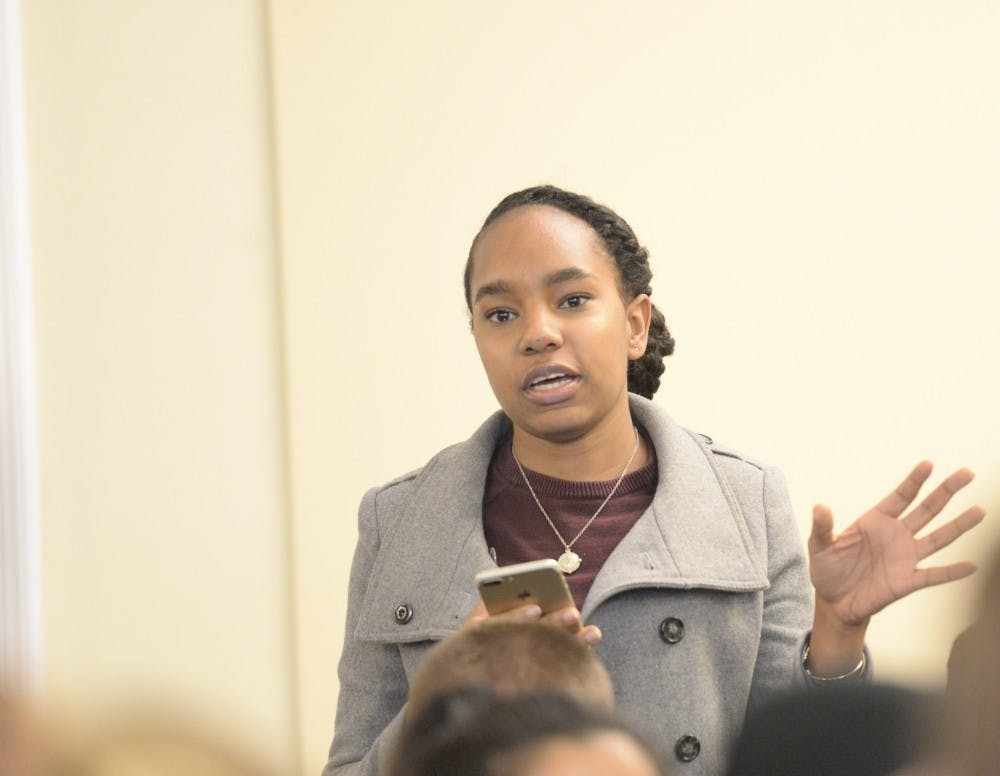Students and Student Council members debated a new College policy on low-enrollment classes Tuesday night. Bryanna Miller, a fourth-year College student and the student member of the Board of Visitors, spoke early in the meeting to quell student concerns regarding the policy, which involves administrative review of classes with fewer than eight students enrolled.
Following Miller’s remarks, several students spoke up during the public comment period of the meeting to voice their concerns, saying they were worried smaller departments would be especially hard-hit by the policy.
Miller spoke during the Executive Board reports section of the meeting, after Sarah Kenny, a fourth-year College student and Student Council president, introduced her.
Miller first described the policy, explaining the College’s criteria for review.
“Courses that have less than eight students … will come under review from the College,” she said.
She urged students not to worry about any large-scale cuts to course offerings or departments, saying the policy is merely a way for the College to update its curriculum and make sure students are interested in the courses offered.
“The general idea is not to shut down departments or prevent people from pursuing certain majors and minors,” Miller said. “The real goal here is to improve the educational quality of the College’s offerings.”
She said the program would also serve as an oversight method, ensuring professors are actually teaching the classes listed on SIS. Miller closed by reassuring students once more that the only goal of the program is to improve the College’s offerings.
“There’s not going to be a mass decimation of courses or departments,” she said. “The idea really is to make sure that we’re teaching classes that students want to take.”
Following her comments, however, several students took the floor during the public comment session to express concerns about the negative impacts of the new policy. First-year College student Omeed Faegh spoke in defense of the Department of Middle Eastern and South Asian Languages and Cultures.
“There’s a general lack of knowledge about Middle Eastern culture and South Asian culture,” he said. “It’s very important to keep the department alive.”
Faegh took issue with the lack of student input involved in the policy, and also with the manner in which it has been carried out — he claimed it had not been applied equally to all low-enrollment classes, but selectively applied at the discretion of College deans.
Katherine Weyback, a second-year College student who transferred to the University this fall, said she transferred here specifically for the school’s strong language programs — only to find that many of the classes she hoped to take could potentially be cut under the new policy.
“I wanted a school that had more resources, and specifically stronger and more diverse language programs,” she said.
She felt it is important for the University to preserve the diverse language selection it now offers.
“The fact that cutting these programs is even on the table is outrageous to me,” Weyback said. “It feels crucial to global involvement.”
Wes Gobar, a fourth-year College student and president of the Black Student Alliance, also shared apprehensions about the policy’s impact on smaller departments.
“Departments may not be immediately axed, but they’ll be marginalized, put on the sidelines,” he said. “We need clarity and we need assurances that our most valuable professors and departments aren’t at risk.”
Attiya Latif, a fourth-year College student and student director of the Multicultural Student Center, agreed with Gobar’s concerns about marginalization.
“We have very few professors in the Middle Eastern studies department,” she said. “The department as a whole is dying, it’s getting smaller, it’s being marginalized.”
She asked Student Council leaders to pursue the matter, worrying the policy could take its toll on already shrinking departments on Grounds.
“A policy like this will only make it worse,” Latif said. “I’d really encourage you guys to look into this policy.”







